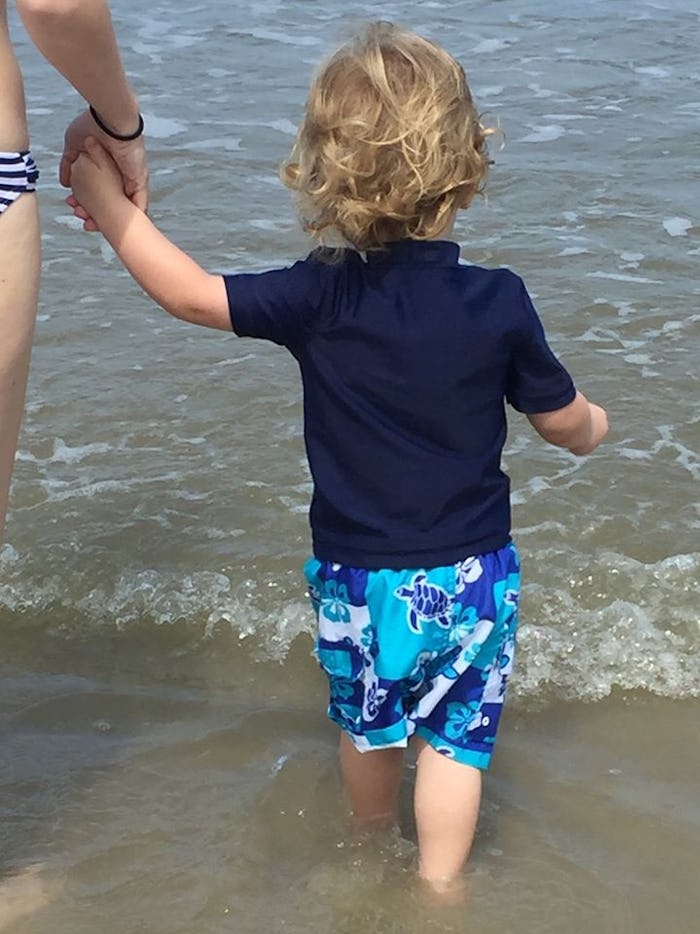Life

How To Keep Track Of Your Child At The Beach
One of the best parts of summer is getting to spend some quality time with your family. Another perk of the sunny season is that you can spend hours of fun playing in the sand and surf. But if you have children, no matter how old they are, you still might find yourself distracted with worry for their safety and well-being during your outing. It doesn't matter if you're in an unfamiliar environment on a vacation or if the ocean is right in your backyard, you'll still be thinking about how to keep track of your child at the beach.
On one hand, the beach can feel like nature's playground with no need to bring your own entertainment; you can swim, boogie board, surf, make sand angels, dig for buried treasure, look for seashells, or just catch some rays. Yet on the other hand, your trip to the shore might feel like a National Geographic special waiting to happen with sharks possibly lurking in the waves or harmful UV rays burning your little one's sensitive skin.
But that's what parenthood is all about, isn't it? It's constant game of balancing between enjoying carefree moment and preventing catastrophes. So if you're concerned about the best ways to keep track of your kid at the beach, worry no more and check out these helpful tips.
1Talk To Lifeguards
They say it takes a village to raise a child, and going to the beach isn't much different. Parenting expert Patrick Quinn told The Huffington Post that people often assume lifeguards are just teens or only there for rescue purposes. In all actuality, lifeguards go through rigorous training and are knowledgeable about beach safety. Don't hesitate to talk to a lifeguard and let them know you have a young child so they might keep an extra eye out.
2Don't Rely On Older Kids
This one may sound harsh, but it's true. Even the most mature, well-intentioned older child is still a child and accidents can happen in the blink of an eye. Though it's usually OK to let an elder sibling keep an eye on their younger brother or sister, just make sure you're not solely relying on them to take the place of a watchful parent
3Set Limits Beforehand
If your child is anything like mine, by the time you arrive at the beach, they are so amped about getting to go splash around that they're unlikely to pay attention to anything you're trying to say. The best way to keep track of your kids isn't to wait until you get to the beach to talk about rules. The American Red Cross advised that you set limits prior to going down to the shore. This way there will be less confusion once you actually get there.
4Bring Bright Colors
Whether it's bright towels, colorful clothing, or a uniquely patterned beach umbrella, it will help both you and your child instantly locate each other when you have something easily recognizable with you.
5Choose The Right Spot
In addition to offering help, the stand or station a lifeguard sits in also serves a purpose. If you're worried about your kids losing sight of you, set up shop near the lifeguard tower. Jessica Matier, a parenting expert, told Parents that "it makes it easier for your kids to remember where you are in case you get separated." If there are other bright or tall landmarks at the beach, you can use those as well.